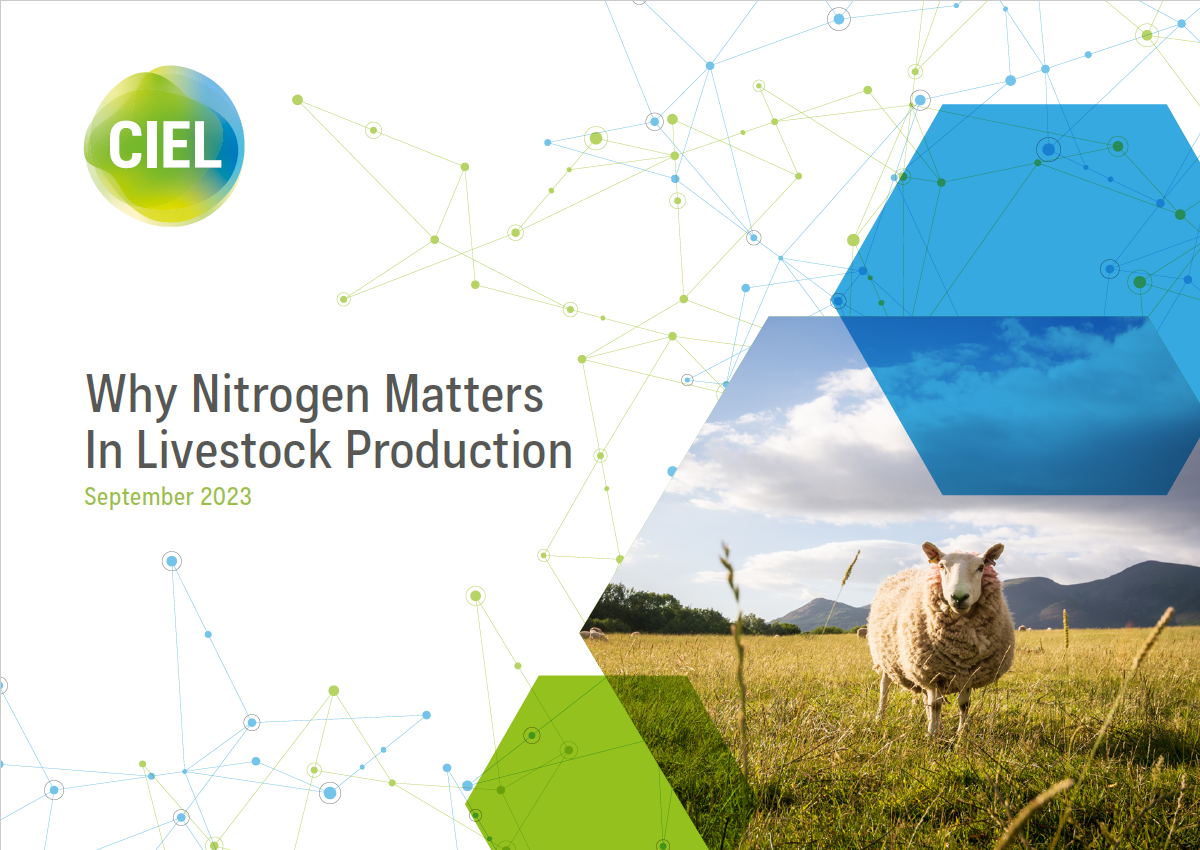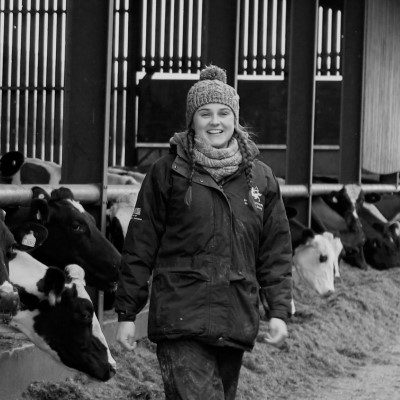CIEL | Blog: Why Nitrogen Matters in Livestock Production
Katerina Karpasitou

Recent CIEL reports on Net Zero & Livestock have highlighted the key role animals can play in agriculture by returning nutrients to soils through manures as well as for food and nutritional security by supplying high quality protein-based foods. A key nutrient is nitrogen, or, using its scientific symbol, N. While those reports identified negative impacts associated with nitrogen losses or emissions, such as nitrous oxide and ammonia from manures and artificial nitrogen fertilisers, the complete picture and importance of the nitrogen cycle was not explored.
CIEL’s latest report, Why nitrogen matters for livestock production, looks at how nitrogen moves through the food system from the point of view of livestock farming, showing how and why this element is fundamental to the production of nutritional protein, as well as where losses might occur in the cycle.
Nitrogen is everywhere
It is found in both living and non-living things. In fact, it’s the most abundant element in the Earth’s atmosphere: around 78% of it. The nitrogen cycle is a series of processes during which nitrogen is converted into different forms that allow it to move (or cycle) through the atmosphere, soil, water, plants, animals and microbes.
So, how does nitrogen add value to food production?
Nitrogen-fixing bacteria in the soil, during a process known as nitrogen fixation, capture and convert nitrogen gas (N2) into forms plants can absorb. These forms of nitrogen are used by plants to synthesise amino acids, the building blocks of proteins. Proteins produced are essential for plant growth, maintenance, reproduction, and fighting disease.
For animals, it’s a bit different. They cannot make all the amino acids they require, so they must obtain “essential amino acids” from their diet to make the proteins they need. Dietary protein quality, is a function of the proportion and bioavailability of different amino acids in a dietary protein source. For lower quality protein, where the balance of different amino acids does not match animal need, nitrogen losses increase as unused amino acids are metabolised. An upcoming CIEL report, due for release in November 2023, will explore the role of protein quality in livestock farming in more detail.
Synthetic fertilisers and nitrogen losses
The discovery that nitrogen fixation allows available nitrogen forms to be taken up by plants, therefore increasing plant growth and consequently yields, led to the development of synthetic nitrogen fertilisers – a major contributor to increased agricultural productivity and food security in the last 150 years. However, we now know that there is a large energy cost to producing such fertilisers which increases carbon emissions unless green energy is used. Furthermore, nitrogen losses from farming, particularly livestock farming, may lead to the release of nitrous oxide (a potent greenhouse gas) and ammonia (a pollutant and respiratory irritant), or nitrate leaching from fields into waterways causing further environmental and health impacts.
Shifting our perspective
But it isn’t just about the negative effects relative to livestock production. It’s more about how we can make best use of livestock by shifting our perspective to recognise that livestock farming can act as opportunity, or even a catalyst, through up-cycling the nutritional quality of feed to produce highly nutritious food as well as by returning nutrients to soils using good manure management.
Promoting better environmental stewardship in this way will boost the resilience of the agricultural sector in the face of climate change and uncertainty while strengthening food security for a continuously growing population.


Katerina Karpasitou, Sustainability Project Manager
Katerina provides insight about the environmental sustainability dimension of current and future CIEL projects, in order to support industry members and help build momentum from a sustainability perspective. She has an MSc from Lancaster University in Environmental Management and came to CIEL after working for Agrecalc, a carbon calculator for agriculture.







